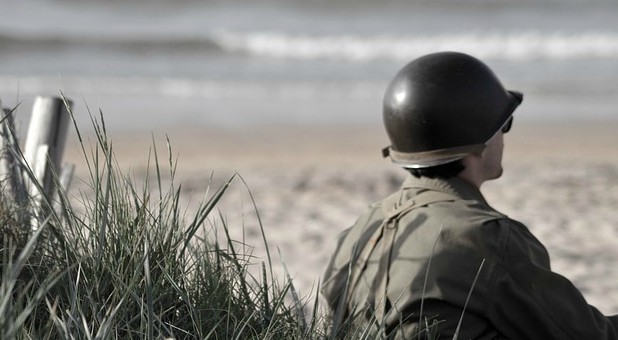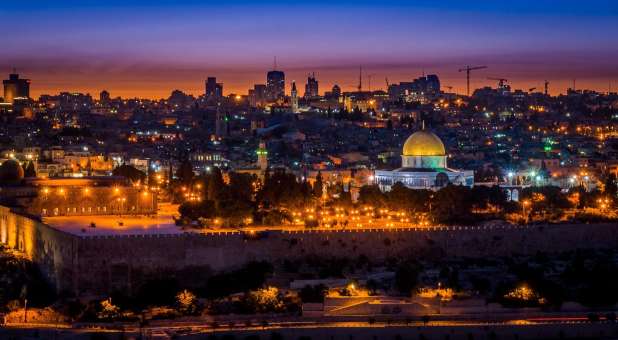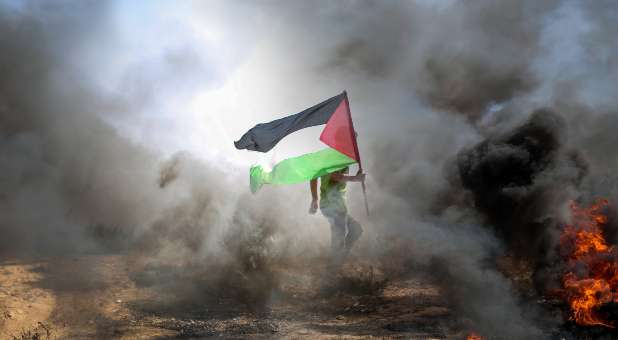This past week, Israel, commemorated the 70th anniversary of one of its most heroic, sad, and yet pivotal battles in its early struggle for independence, among ongoing battles to defend itself until today. I was reminded of the anniversary when I drove by a pristine Judean mountain location known as “Battle Hill.” But had I forgotten that it was the anniversary, I’d have been reminded with the weekend newspapers recounting the story of heroism then, and reminding us today how pivotal the battle was 70 years earlier.
In reading the newspaper, I was proud and excited to see that my 12-year-old son recognized the picture of Danny Mass, the commander of that battle, while standing next to me looking at the paper upside down. It was a yet another reminder of what a blessing it is to raise my children in the land, not just of our biblical forefathers, but of brave and inspirational heroes in the modern era who paved the way for us to be here today.
Making this battle all the more poignant for us is that we live in Gush Etzion, the Judean mountain region in which battle took place, where the brave Jewish soldiers fought and lost their lives. We have them to thank for the fact that the Jewish communities of this region were able to hold on as long as they did defending themselves then, and as a southern line of defense to prevent Jordanian and other Arab forces from entering Jerusalem in 1947-48.
Underscoring the significance of this battle, every year, Israeli teens from across the country gather to reenact the overnight march from the valley below to the site of the battle dozens of kilometers away. My five oldest children have done this and understand the bravery and the challenges of carrying supplies weighing 70 kg up a rocky, mountainous terrain in the cold and sometimes rainy January night.
Long before the 1947 partition plan where the U.N. voted to create a Jewish and Arab state in the land of Israel, early pioneers established four thriving Jewish communities. The communities lived by in large at peace with neighbors in the Arab villages nearby, conducting business together, and even invited one another to their community celebrations. After the Holocaust, many survivors joined these communities. Yet in 1947, following the Arab rejection of any Jewish state in the land of Israel, Arab armies invaded, and local Arab tribes were rallied into rudimentary combat forces to fight against their Jewish neighbors.
Where weeks earlier Jews were inviting Arabs to share in community celebrations, suddenly Arab neighbors were galvanized by anti-Semitic incitement and profound hate, and the Arabs with whom the Jews once had cordial relations willingly joined the battle against the Jews, under promise of the opportunity to loot the Jewish communities following their destruction.
Because of the siege that prevented the delivery of weapons to defend themselves and basic food to sustain themselves, a valiant operation was undertaken in January 1948 to provide reinforcements. Thirty-five young men among the most elite of Israel’s early combat forces, set out in the middle of the night for a hike under cover of darkness carrying bags with weapons, plasma, and other supplies that were critically needed. At daylight, they were spotted by two Arab women gathering wood who ran to the nearest Arab village galvanizing a massive military response. The 35 men sought high ground to defend themselves.
The battle lasted all day, and it’s believed that the Jewish soldiers were trying to hold out until night when the Arabs would have to retreat for reinforcements. But they ran out of ammunition and were outnumbered by the hundreds, so much so that they took to defending themselves with stones.
The following day, when the bodies were recovered by then occupying British forces, they noted that some of the Jewish soldiers died even with rocks in their hand. Many of the men’s bodies were mutilated beyond recognition as part of the Arab “celebration” of their victory.
Eulogizing the 35 brave soldiers, David Ben-Gurion who would become Israel’s first prime minister said, “‘If there exists a Jewish Jerusalem, our foremost thanks go to the defenders of Gush Etzion.” Even Sheikh Ibrihim from the Arab village of Jab’a who took part in the battle praised the 35, “If I am to die, I want to die like these heroes.”
While the battle was a tremendous physical loss and diminished morale, the battle had a tremendous psychological effect on the Arabs. They resisted attacking the Jewish communities further citing fear that more Jewish soldiers would be coming to provide reinforcements, and noting that based on how heroically the 35 men fought, the Arabs would never be able to win.
The Israeli communities were able to hang on until they were overrun by well-trained Jordanian forces along with the Arab irregulars. On May 13, the day before Israel declared independence, all but a handful of the final defenders of these communities were viciously slaughtered.
After the 1967 Six-Day War, Israel was able to reclaim Gush Etzion in which these communities had thrived, and where they have now been rebuilt and thrive again.
Recently, after a long case, Israel’s Supreme Court affirmed that the land on which these communities were founded and reestablished are privately owned Jewish land, undermining claims that they are somehow “occupied” or Jews have no historical presence there.
It’s incredible to live in this part of the land of Israel, where we literally follow in the footsteps of our biblical ancestors and modern-day heroes. There’s a wonderful book that chronicles much of the history of the life and, ultimately, destruction of these communities called Siege in the Hills of Hebron.
Please be in touch, and come visit and be inspired yourself. {eoa}
Jonathan Feldstein was born and educated in the U.S. and immigrated to Israel in 2004. He is married and the father of six. Throughout his life and career, he has been blessed by the calling to fellowship with Christian supporters of Israel and shares experiences of living as an Orthodox Jew in Israel. He writes a regular column for Standing With Israel at cn.mycharisma.com. He can be reached at [email protected].
See an error in this article?
To contact us or to submit an article






















